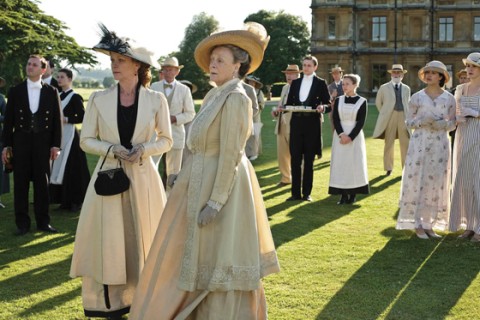Downton Abbey

“I’ve been telling everyone who’ll listen how great Downton Abbey is,” I said in a sermon that was technically about evangelism. I was illustrating St. Augustine’s point that when people love, say, a great actor they tell others about him—and so how much more should we tell others about the gospel. A week later I learned how (un)successful that point had been.
“I’ve watched every episode,” a parishioner said. “Now what was it you were trying to say about that show?”
Maybe just that it’s really, really good. The TV series made in Great Britain, which completed its second season this winter, has been a hit around the world. A third season is in production and talk about a fourth is under way. All this attention is being showered on a costume drama (the series is set in the era of World War I), which usually appeals only to stodgy, BBC-watching nerds. In the ultimate sign of pop culture respect, Saturday Night Live spoofed the show.





